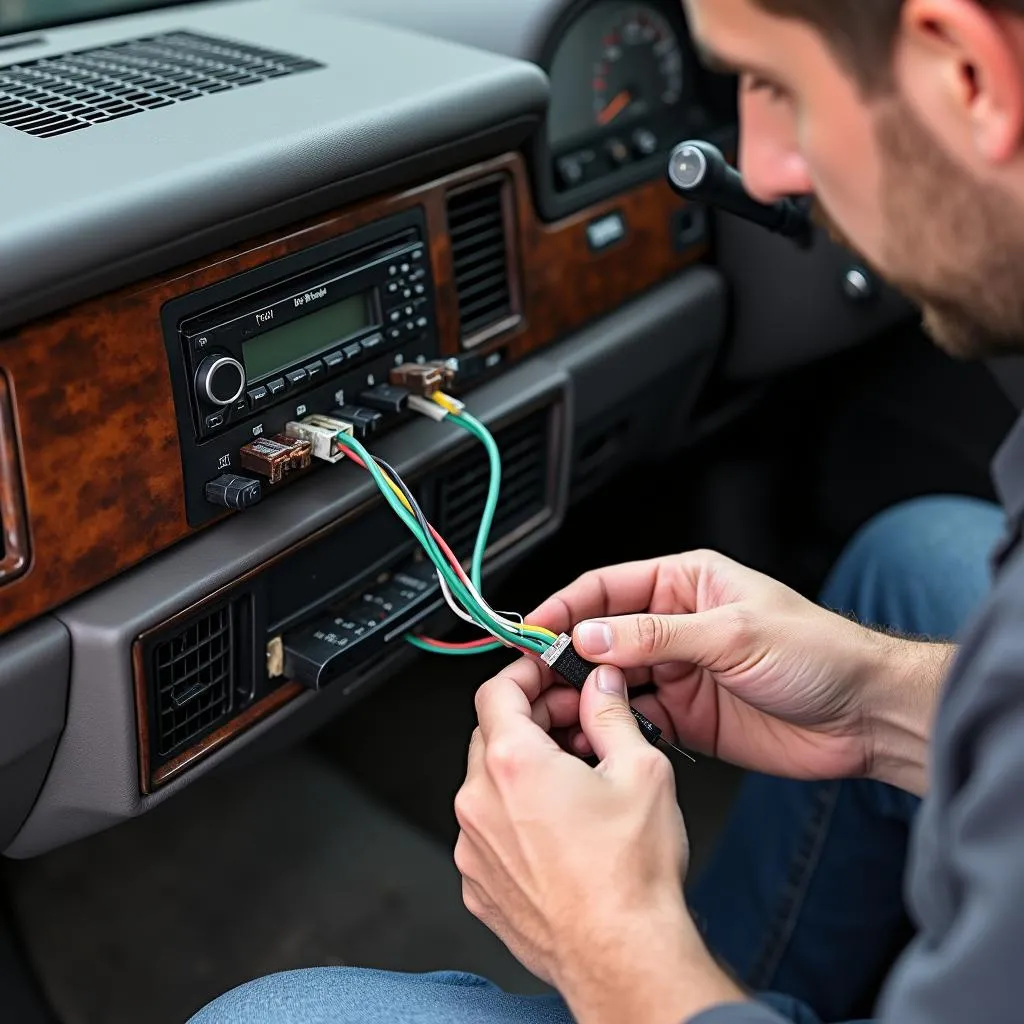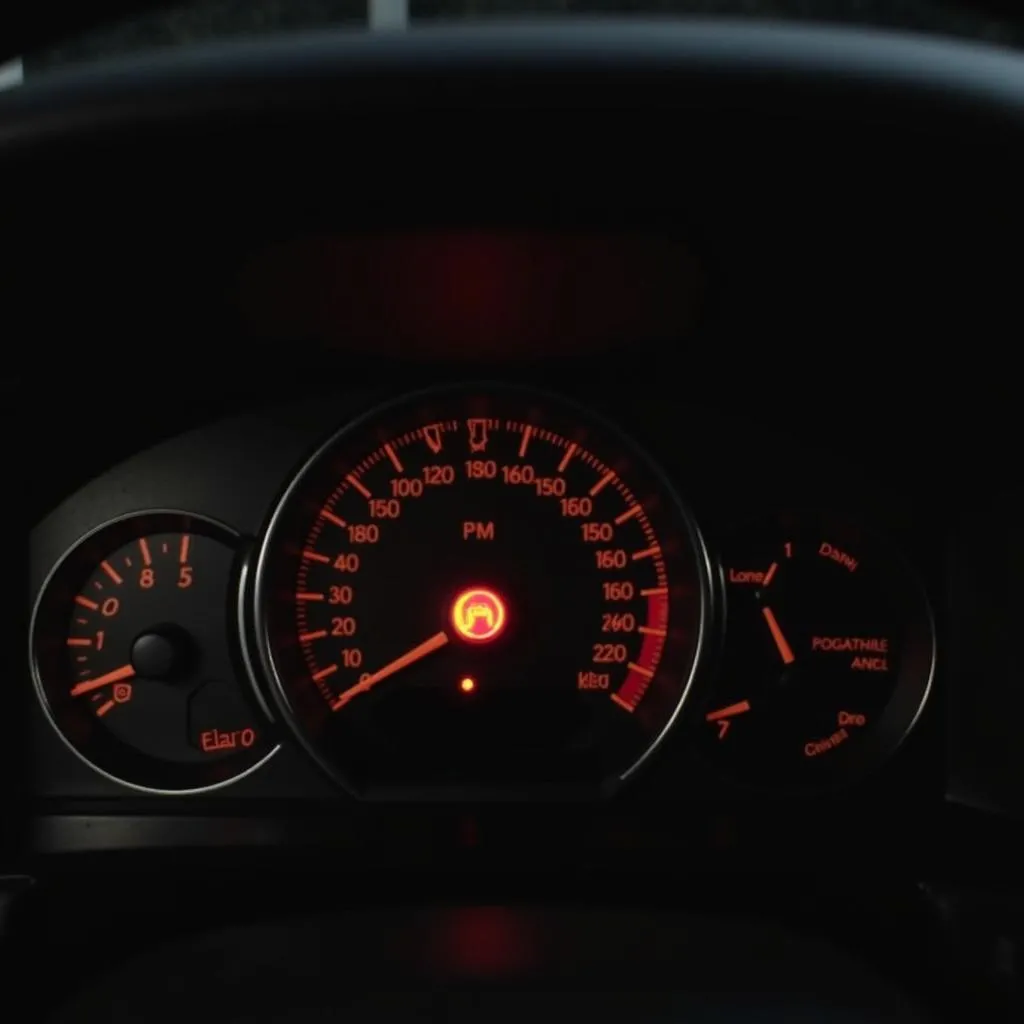Experiencing warning lights related to your Jaguar XK’s braking system can be unnerving. These warnings, often accompanied by messages like “Foot Brake Fault” or “Handbrake Fault,” signal potential issues requiring immediate attention. While the exact cause can vary, this guide offers insights into common culprits behind these warnings in Jaguar XK models and provides a roadmap for diagnosis and resolution.
Understanding the Warning Messages
Before diving into diagnostics, it’s crucial to understand what your Jaguar XK is trying to communicate:
- Foot Brake Warning: This warning typically indicates a problem with your primary braking system, which relies on hydraulic pressure to stop the vehicle.
- Handbrake Warning: This warning usually points to an issue with your parking brake, also known as the emergency brake.
While these warnings can occur independently, it’s not uncommon for them to appear simultaneously, especially if the underlying cause affects multiple braking system components.
Common Causes of Jaguar XK Brake Warnings
Several factors can trigger brake warnings in your Jaguar XK. Here are some of the most frequent culprits:
1. Low Brake Fluid Level
Brake fluid is the lifeblood of your Jaguar XK’s braking system. A low fluid level often indicates a leak in the system, which can significantly compromise braking performance.
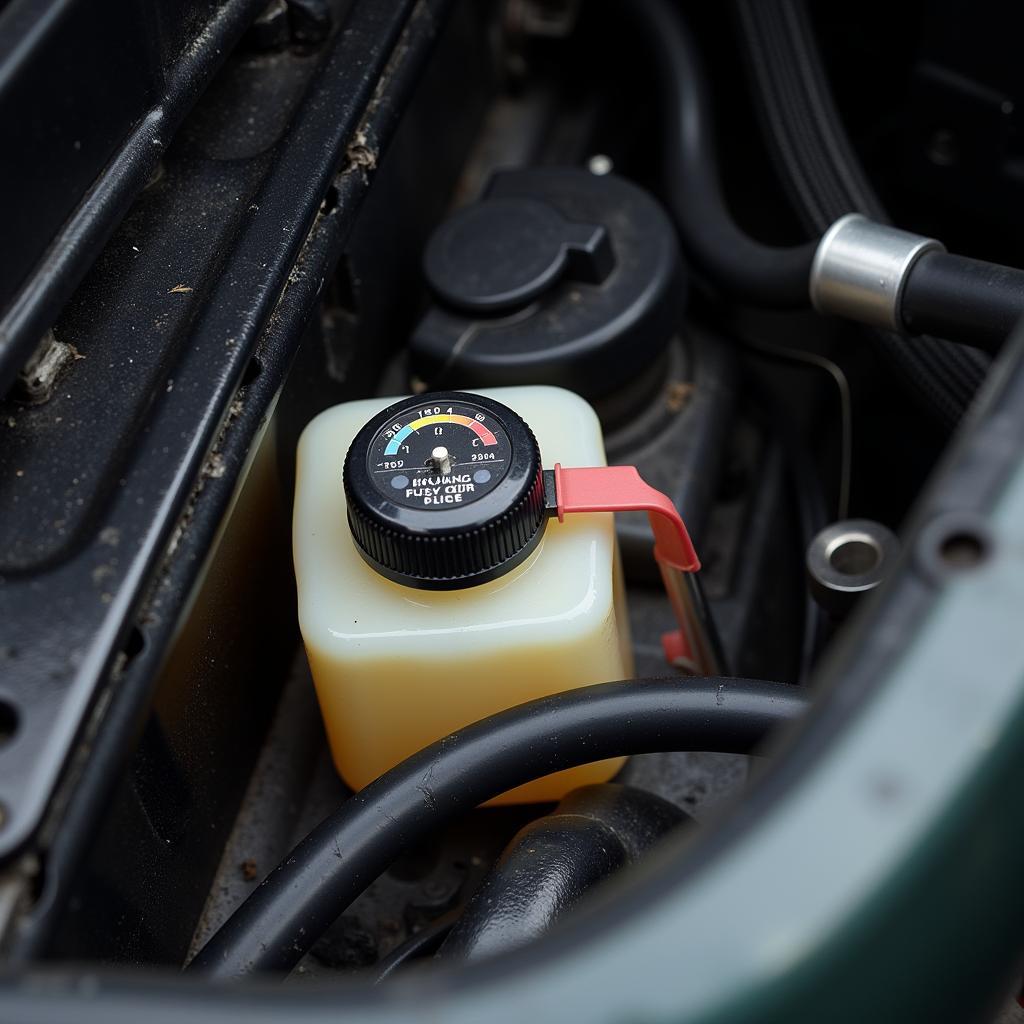 Jaguar XK Low Brake Fluid
Jaguar XK Low Brake Fluid
2. Worn Brake Pads
Brake pads are designed to wear down over time. As they thin, the brake caliper pistons need to extend further to apply the same braking force. Eventually, the pads wear down to a point where the brake pad wear sensor triggers a warning light.
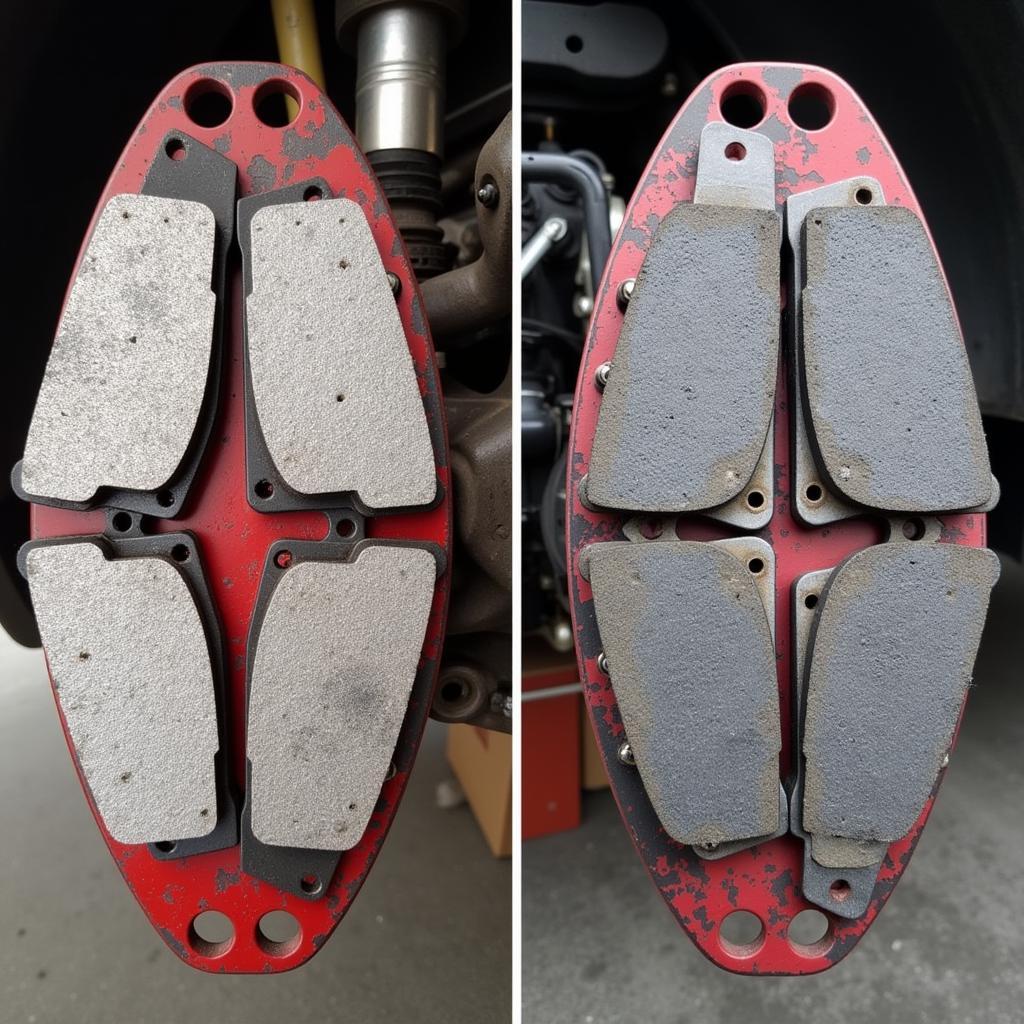 Jaguar XK Worn Brake Pads
Jaguar XK Worn Brake Pads
3. Faulty Brake Sensors
Your Jaguar XK relies on various sensors to monitor the braking system. A faulty brake pad wear sensor, brake pressure sensor, or handbrake switch can all trigger warning lights, even if no actual mechanical issue exists.
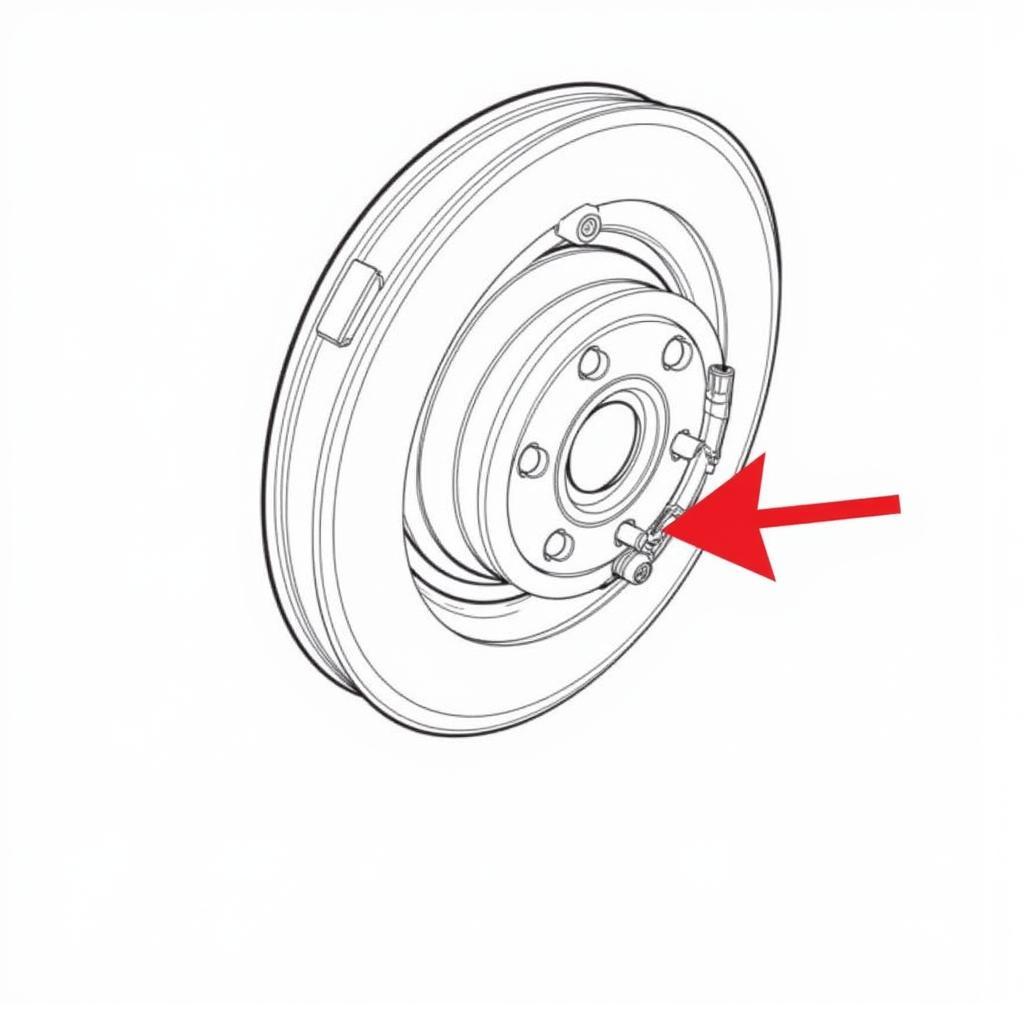 Jaguar XK Brake Sensor Location
Jaguar XK Brake Sensor Location
4. Electrical Issues
Electrical faults within the braking system, such as wiring harnesses, connectors, or the instrument cluster itself, can lead to erroneous warning messages.
5. ABS Module Malfunction
While less common, a malfunctioning Anti-lock Braking System (ABS) module can also trigger brake warnings. This module plays a crucial role in preventing wheel lockup during hard braking.
Diagnosing the Issue
Pinpointing the exact cause of the brake warnings in your Jaguar XK typically requires a systematic approach:
- Check the Brake Fluid: Begin by visually inspecting the brake fluid level in the reservoir. If it’s low, there’s likely a leak in the system requiring immediate professional attention.
- Inspect Brake Pads and Discs: Examine your brake pads and discs for signs of excessive wear or damage.
- Scan for Fault Codes: Connecting a diagnostic scanner to your Jaguar XK’s OBD-II port can reveal stored fault codes, offering valuable clues about the nature of the issue.
- Test Sensors and Components: Based on the fault codes or visual inspection, further testing of individual sensors and components may be necessary.
“When diagnosing brake warnings in a Jaguar XK, it’s crucial to rule out the simplest possibilities first, such as brake fluid levels and pad wear, before delving into more complex electronic diagnostics.” – David Thompson, Senior Jaguar Technician
Addressing the Problem
Once you’ve identified the source of the brake warnings, you can proceed with the appropriate repairs.
- Low Brake Fluid: Address any leaks in the braking system and replenish the fluid with the recommended type for your Jaguar XK model.
- Worn Brake Components: Replace worn brake pads, discs, or calipers as needed.
- Faulty Sensors: Replace any malfunctioning sensors with OEM-quality parts for optimal performance.
- Electrical Issues: Repair or replace damaged wiring, connectors, or faulty components within the electrical system.
- ABS Module Problems: Depending on the severity, the ABS module may require repair or replacement.
“Never ignore brake warnings in your Jaguar XK. Timely diagnosis and repair can help prevent more serious issues and ensure your safety on the road.” – David Thompson, Senior Jaguar Technician
FAQs about Jaguar XK Brake Warnings
1. Can I still drive my Jaguar XK with a brake warning light on?
It’s strongly advised against driving with a brake warning light illuminated. It indicates a potential issue with your braking system, and continuing to drive could be dangerous.
2. How often should I change my brake fluid?
Jaguar recommends changing your brake fluid every two years or 24,000 miles, whichever comes first.
3. Are brake repairs on a Jaguar XK expensive?
The cost of brake repairs can vary greatly depending on the specific issue, the model year of your Jaguar XK, and labor rates in your area.
4. Can I perform brake repairs on my Jaguar XK myself?
While some routine brake maintenance, such as pad replacement, can be tackled by experienced DIYers, it’s generally recommended to have a qualified technician, particularly for more complex diagnostics or repairs involving the ABS system.
5. How can I prevent future brake issues in my Jaguar XK?
Adhering to the recommended brake fluid service intervals, paying attention to any unusual noises or sensations during braking, and having your brakes inspected regularly can all help prevent future brake problems.

